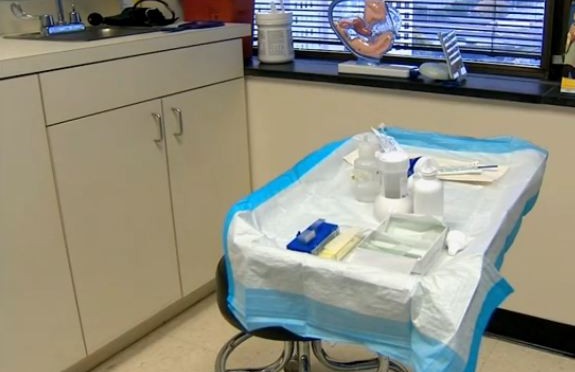
Former clinic worker was reprimanded for not forcing women into abortion
Women change their minds in abortion clinics. Sometimes women back out of their abortions at the last possible minute, when they are about to be put on the table or even when they are on the table. This sometimes happened in Guymer’s clinic. When women changed their mind about having abortions, she did what most reasonable, decent people would do – she told them it was okay and let them go home. However, this got her in trouble:
Because Guymer still had her integrity, she got out of the abortion business quickly. It was clear to her that their concern was not for the well-being of the women, but the profits of the clinic.What if they said “no” when entering the operating room? In this instance I felt compelled to reassure them they didn’t have to go through with it and walked them back to the change room. This was not welcomed by my colleagues at the clinic. I was reminded that this is a business and any slowing in the production line costs money. Constant threats were made that the anesthesiologist had another list at another hospital and any more discussion with the uncertain woman was wasting precious time. Their patronizing remarks that some women will never be 100% sure, and that I should encourage them to go on and get the abortion over quickly, were not comforting: I could no longer participate.
Guymer also spoke about how certain types of women who came to the clinic were more strongly pressured to abort. There was a feeling among clinic workers that certain women were not fit to be parents:
So much for “choice.” The world is full of people who came from less- than-ideal parenting situations and yet live happy, productive lives – but if any of their mothers had wandered into a clinic like this one, they never would’ve seen the light of day.Women who were poor, unemployed, too young, too old, working in the sex industry, not married, had no steady partner, or suffered any mental instability were reassured by the clinic staff and society that it was best they have an abortion. It is clear that society fears a certain type of woman having a baby and I found that many of the doctors and nurses I met in the abortion clinic were not any different despite their supposed commitment to feminist principles.
There have been other stories from women who say they changed their minds at the last minute and the abortionist did the abortion anyway. For example, Caitlin Bruce sued abortionist Dr. Abraham Alberto Hodari, alleging that she changed her mind about her abortion after seeing the sonogram, but Hodari and the clinic workers pinned her to the table and forced her to undergo the procedure anyway. In another case, a clinic worker told a pregnant teen that if she would not consent to the abortion, they would force her to do it anyway.
There are stories from clinic workers too. Planned Parenthood worker Lavonne Wilenken witnessed a 17-year-old girl forced into an abortion against her will.
Sadly, forced abortions are not unknown in today’s abortion clinics. And its no secret that abortion clinics operate more as profit-driven businesses than feminist havens for women. Guymer’s story is only one more drop in a sea of evidence showing the greed and corruption of the abortion industry, and its overall lack of concern for women’s well-being.
Source: Melinda Tankard Reist Giving Sorrow Words: Women’s Stories of Grief after Abortion (Springfield, IL: Acorn Books, 2007) 170, 31
Source: LiveAction News








No comments:
Post a Comment